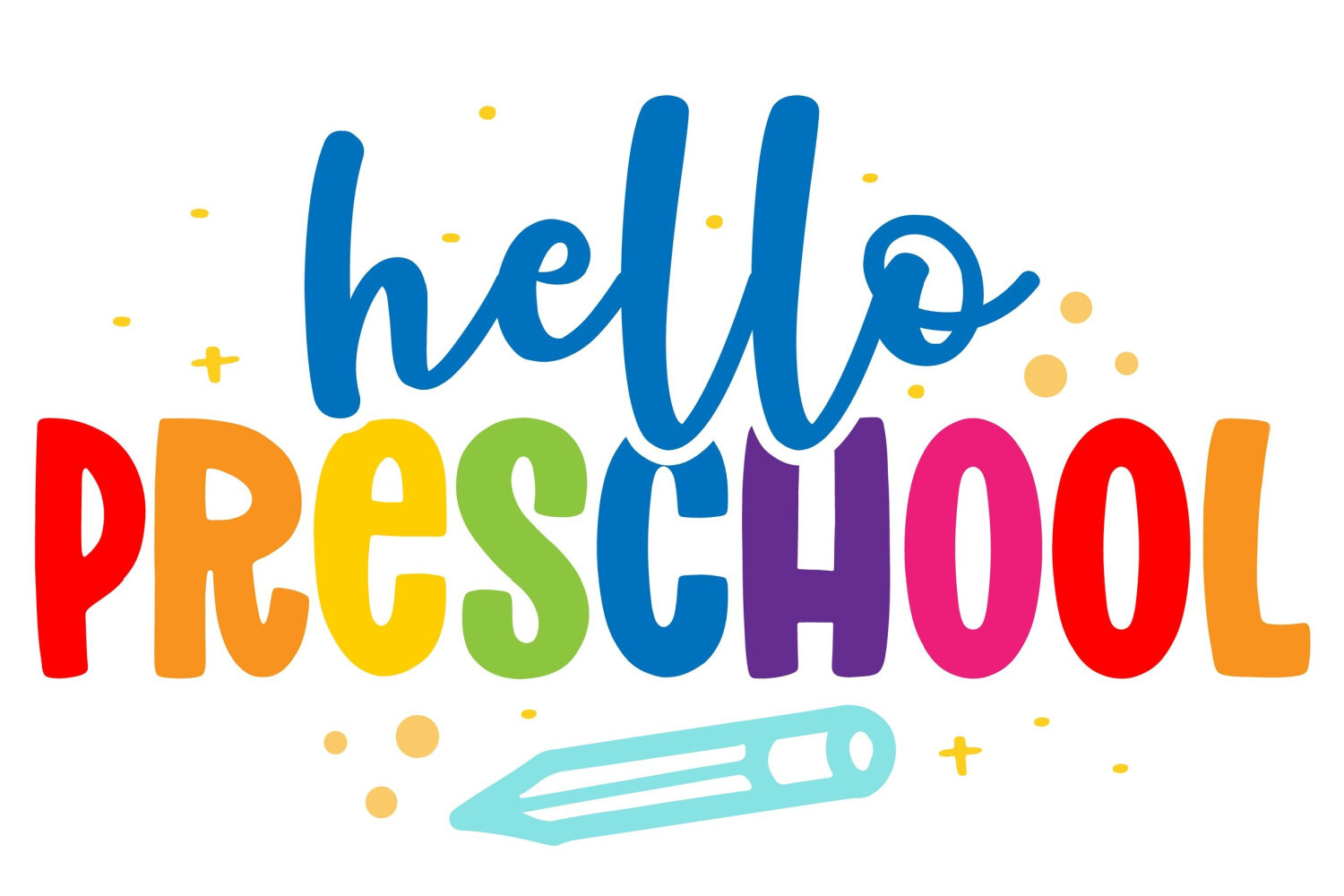
Parents are extremely cautious when it comes to selecting anything and everything for their kids. What they choose or don’t choose can shape their little one in multiple ways. Choosing the right preschool is one of the most important choices a parent has to make in their toddler’s life. Many parents do thorough research including talking to other fellow parents, before they choose a preschool for their toddler.
The preschool your toddler goes to can have a deep impact and a strong influence on the type of person they can be. A preschool is the first external environment you are going to trust your toddler with, every single day. While it can be stressful, with an exhaustive guide, choosing the right preschool can be less daunting. Read on to learn how you can choose the right preschool for your toddler.
In This Article
- What is a Preschool?
- Why is Preschool Important?
- What is The Preschool Age Requirement?
- Factors to Consider When Choosing a Preschool
- FAQ’s
What is a Preschool?
As per definition, a preschool also known as a nursery school or pre-primary school, is an establishment – private or public, that offers early childhood education for toddlers before they start attending the main school. While primary school and above are compulsory for a kid’s schooling, preschool is not.
Why is Preschool Important?
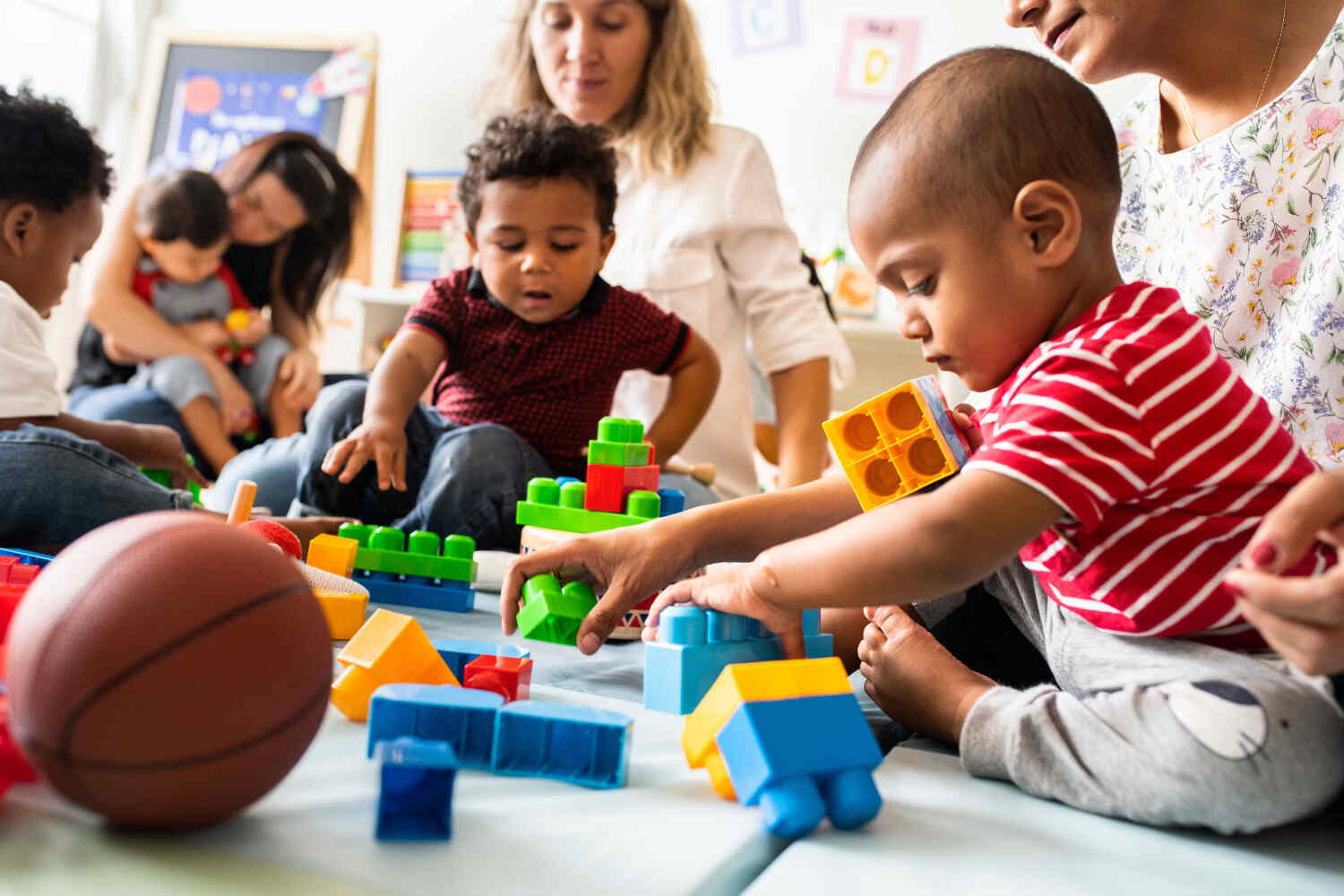
According to Maria Montessori – the great educator who started the Montessori method of education for children, “the goal of early childhood education should be to activate the child’s own natural desire to learn”.
Preschool is most kid’s first educational environment, where they are intentionally taught life-changing skills and lessons. Preschool is a very important milestone in a toddler’s life as it lays the foundation for their future in multiple areas and not just education (1). Hence, choosing the right preschool is very important for your toddler.
What is The Preschool Age Requirement?
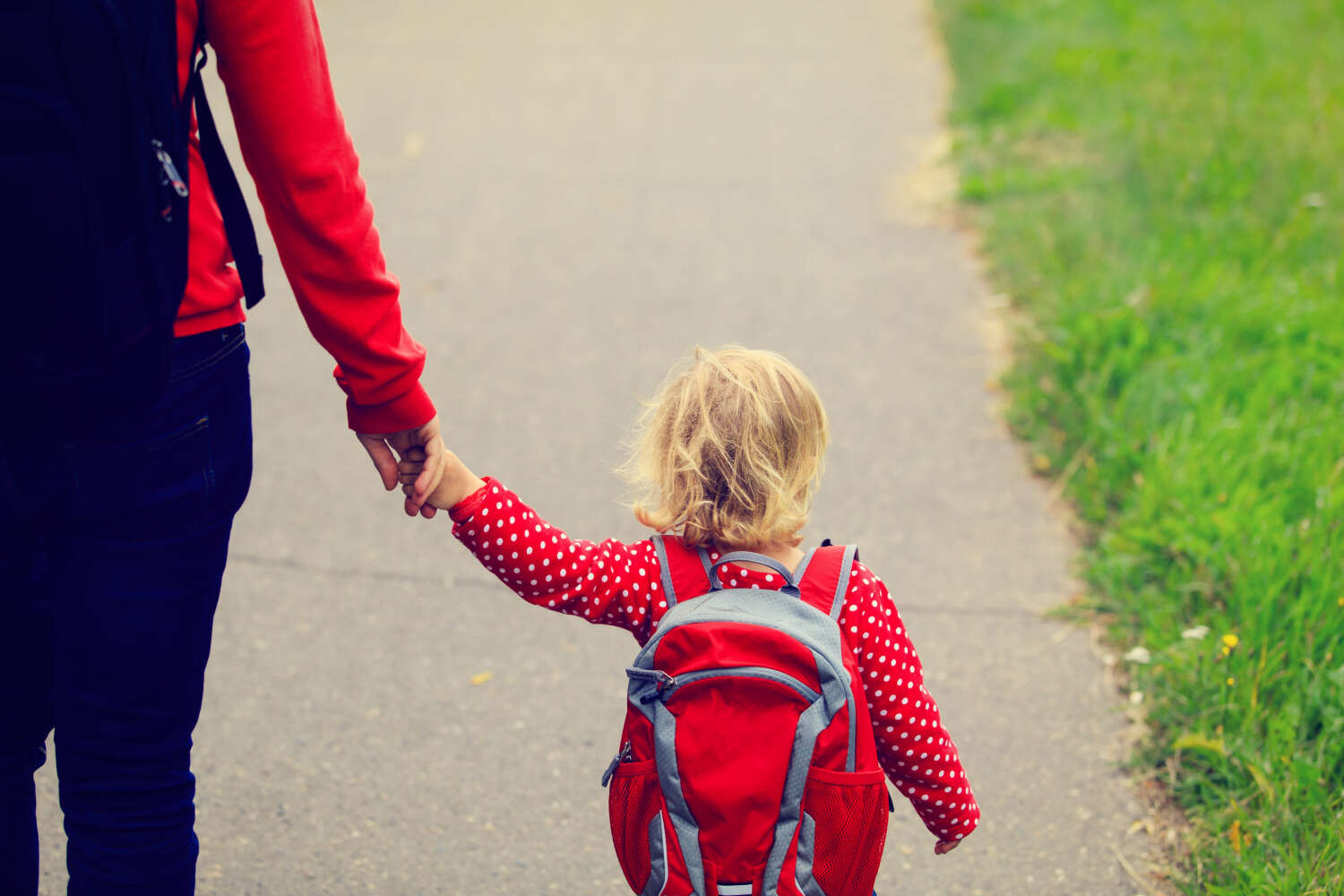
The preschool age requirement varies from institute to institute. It depends on the types of programs the institute offers. While some preschools have programs for babies less than one-year-old, where their mothers have to accompany them, many preschools start intake from 18 months onwards.
In most mainstream schools, kindergarten intake starts from the age of 3 years. So, check the age requirements for the preschools on your list, and choose the one that suits your needs. You need to consider the kid’s current age as well as the age requirement for the main school you are considering.
Factors to Consider When Choosing a Preschool
When it is time to choose a preschool for your toddler, you may start overthinking and rethinking your decision. There are many factors to consider while making such an important decision. Here are some of the most important factors you should give more weightage to, while choosing the right preschool for your toddler-
1. Well-Trained And Friendly Teachers
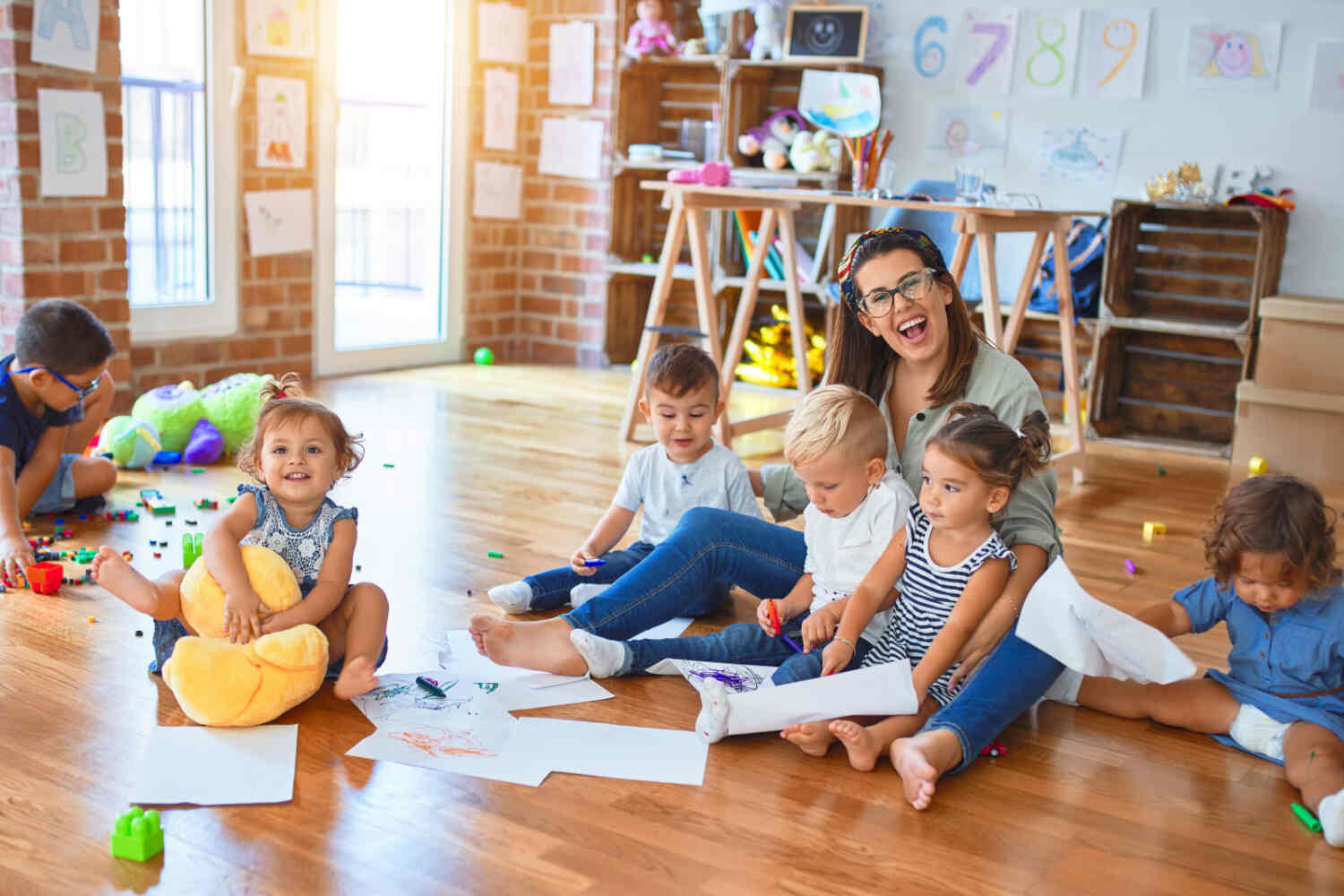
The first and foremost factor to consider when you choose a preschool for your toddler is the teachers. The school can have a reputation and be well-established, but it is the teachers that matter the most. These teachers are going to interact with your toddler every day and are going to impart knowledge. Unless they are well-trained and friendly toward the kids, your toddler cannot learn much (2a).
The teachers also play a major role in developing a kid’s attitude toward peers, the world, and even education itself. If the teacher lacks sufficient training to handle such small kids, it can have an impact on them. A simple temperamental outburst can instill deep fear in a toddler.
2. Hygiene
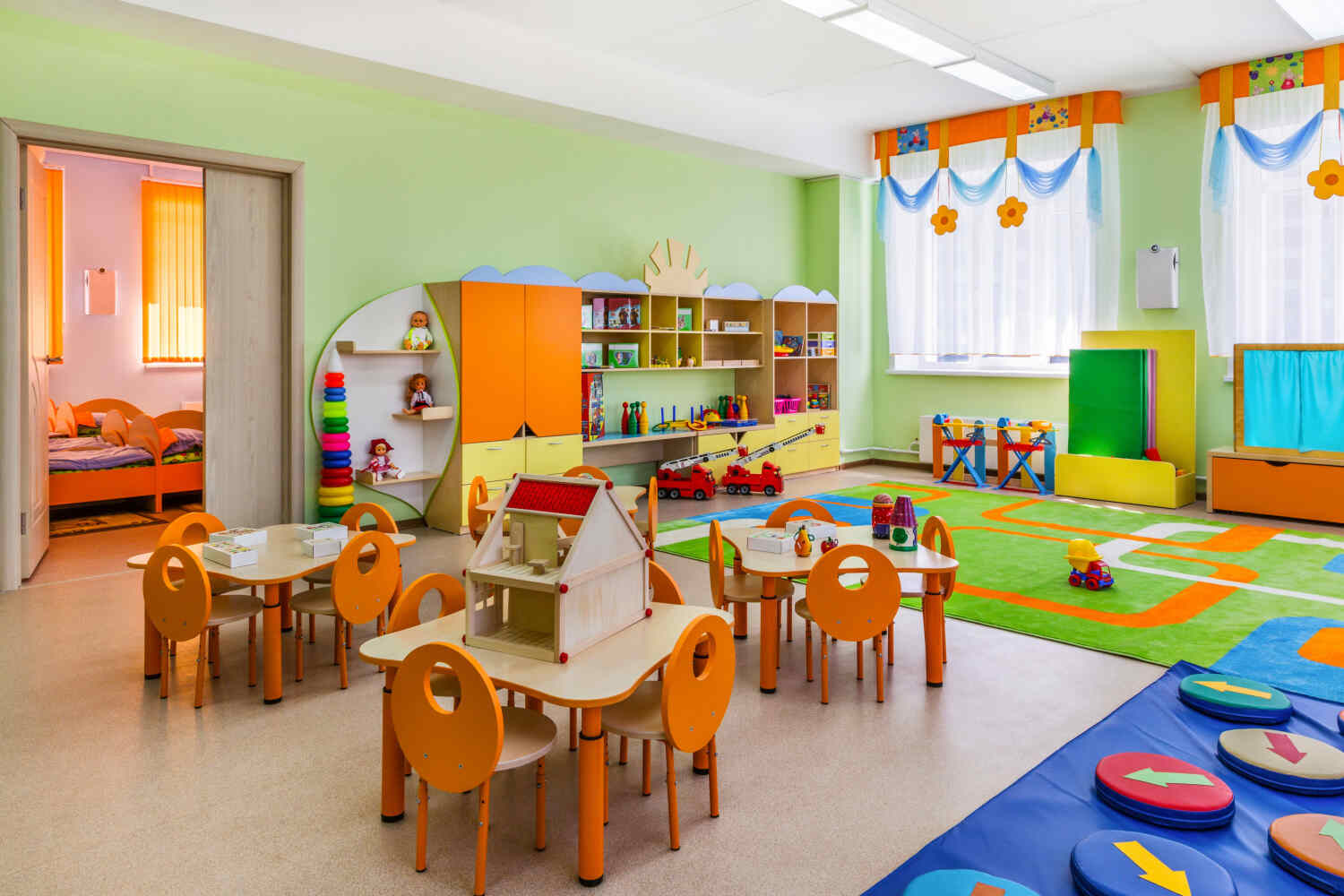
Toddlers and young kids love to explore everything in their surroundings. They are learning constantly and most of it happens through their sense of touch and taste. If the school is not and does not maintain hygiene, your little one can fall sick often.
Most toddlers tend to fall sick when they start preschool. This is because their exposure to new elements and other infections or germs from other kids will increase. A clean and hygienic environment can reduce the spread of infections.
3. Distance From Home
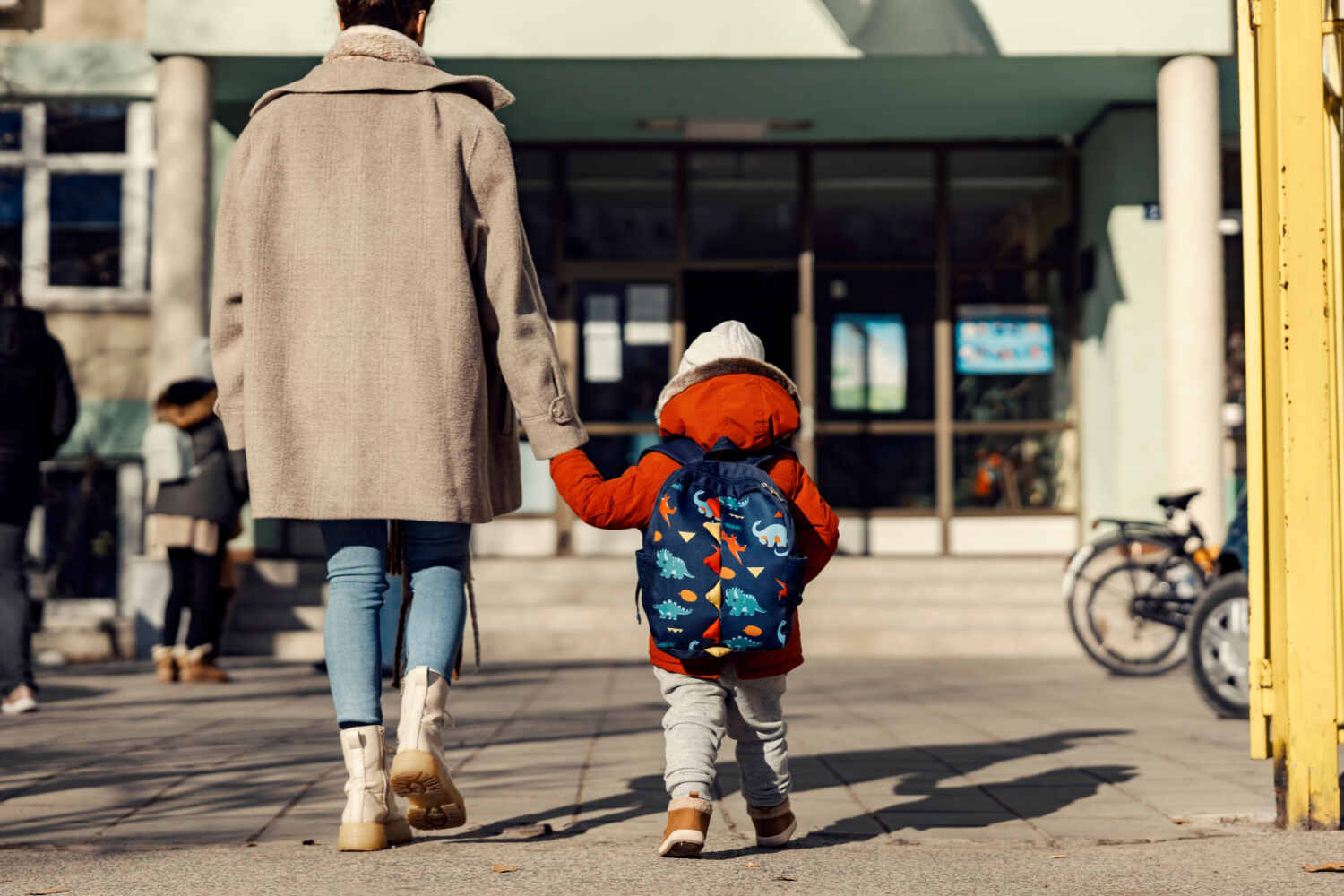
Always choose a preschool close to your home. You may be okay with driving some distance in traffic, to drop and pick up your little one. Consider your toddler’s point of view. Not all kids like sitting idle in the car in traffic.
The further the distance, the earlier your toddler will have to leave home, and will also take longer to reach back home. So, they will be spending more time away from home. This can put off some kids and cause negative feelings toward preschool. They will also tire more easily, leaving them with very little energy to play or explore after they come back home.
4. Safe Infrastructure
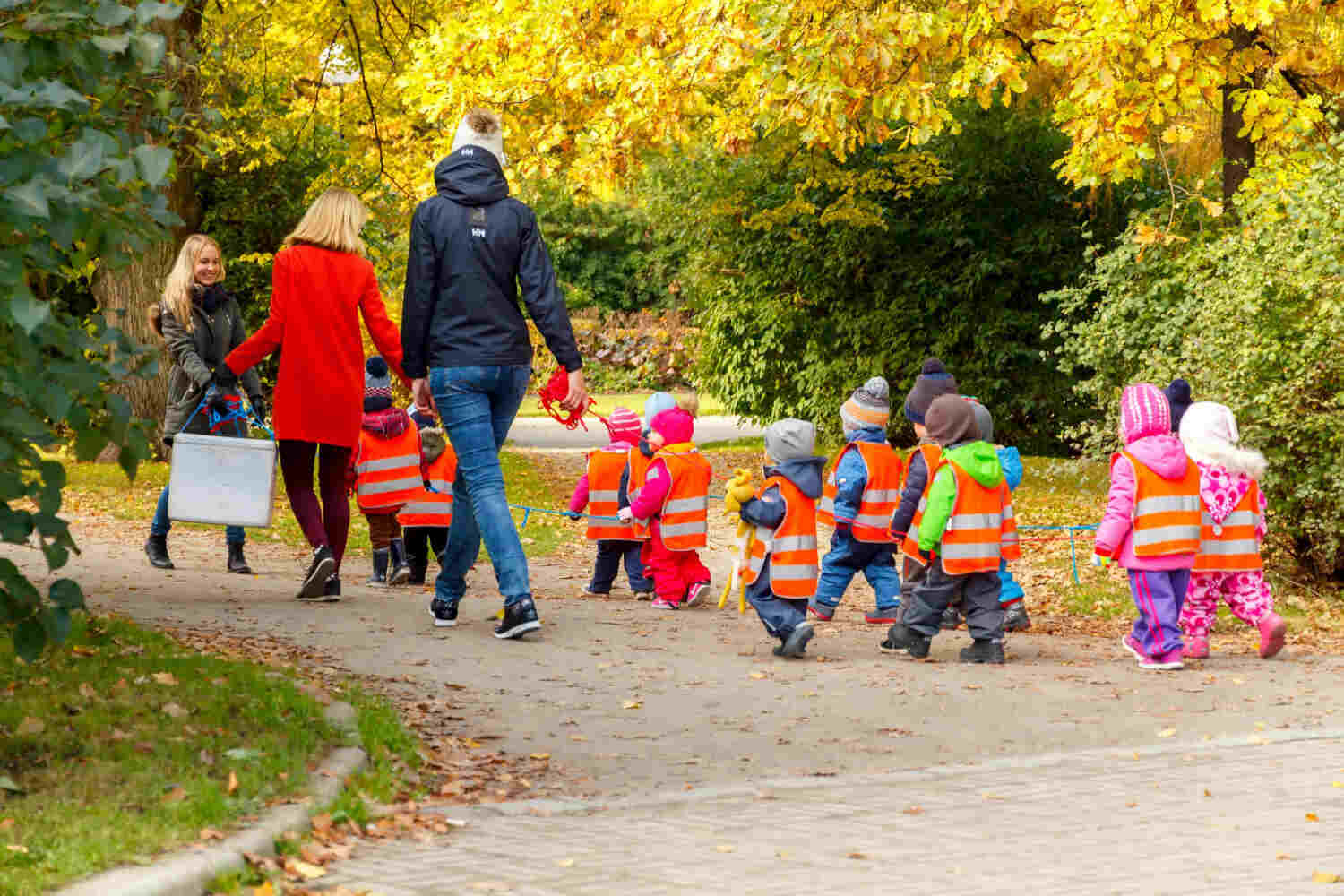
Remember, your toddler will spend a few hours away from your care in the preschool you choose. Always choose a school that not only has state-of-the-art infrastructure but is also safe. Kids will run and play around, paying no heed to safety. It is essential for the environment they play in, to be safe at all times.
According to Maria Montessori “Children acquire knowledge through experience in the environment”, and this environment has to be safe at all times. Infrastructure is a big part of such an environment’s safety.
5. Ample Play Area
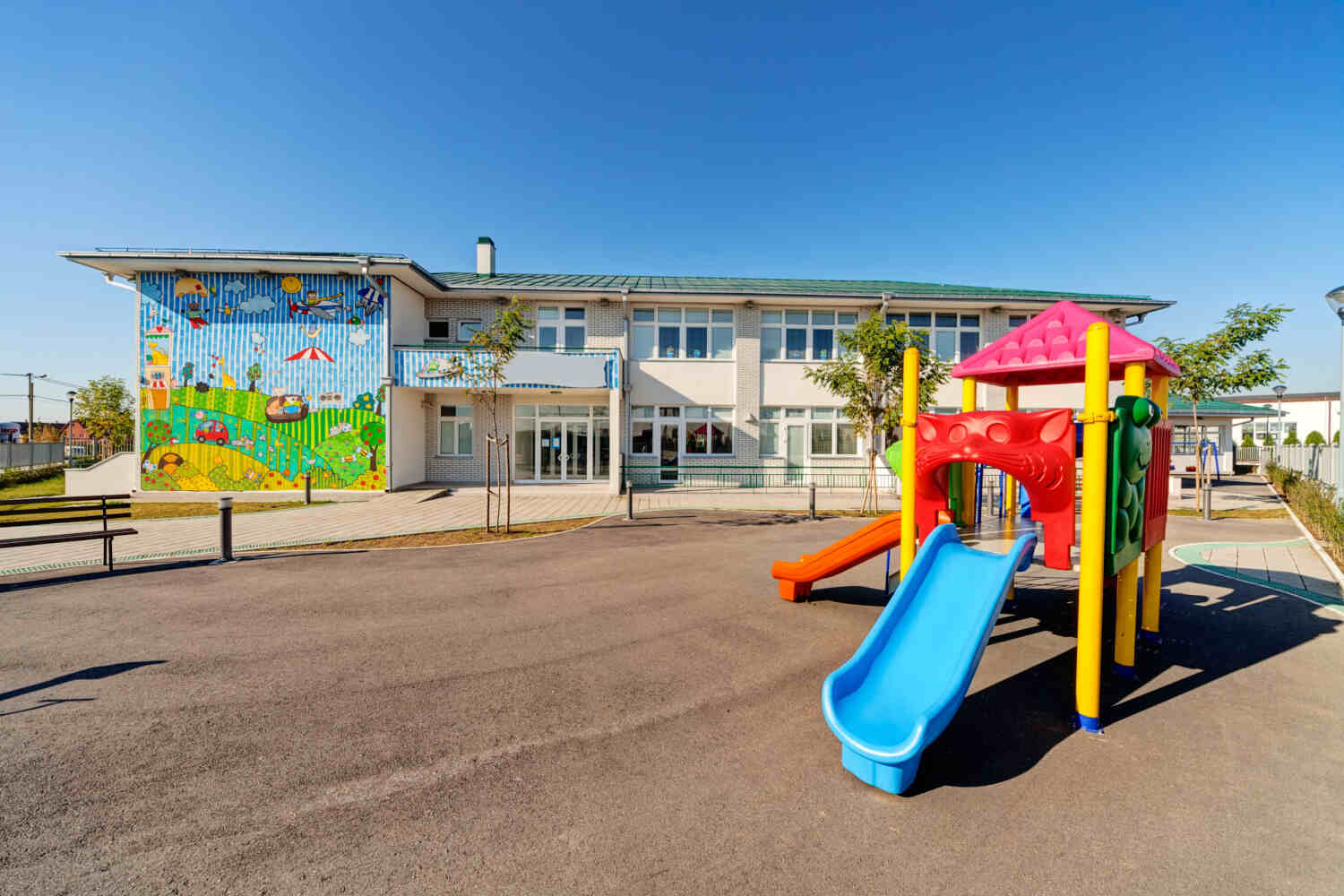
All kids love to play. They learn a lot through play, especially when they play with other kids their age. Find a school that has an ample play area for them to run around and play in, as a big group. A lot of learning and development happens outside the classroom.
Toddlers should also have easy and regular access to the play area. The school should provide them enough opportunities to play outside the classroom.
6. Creative Learning Style
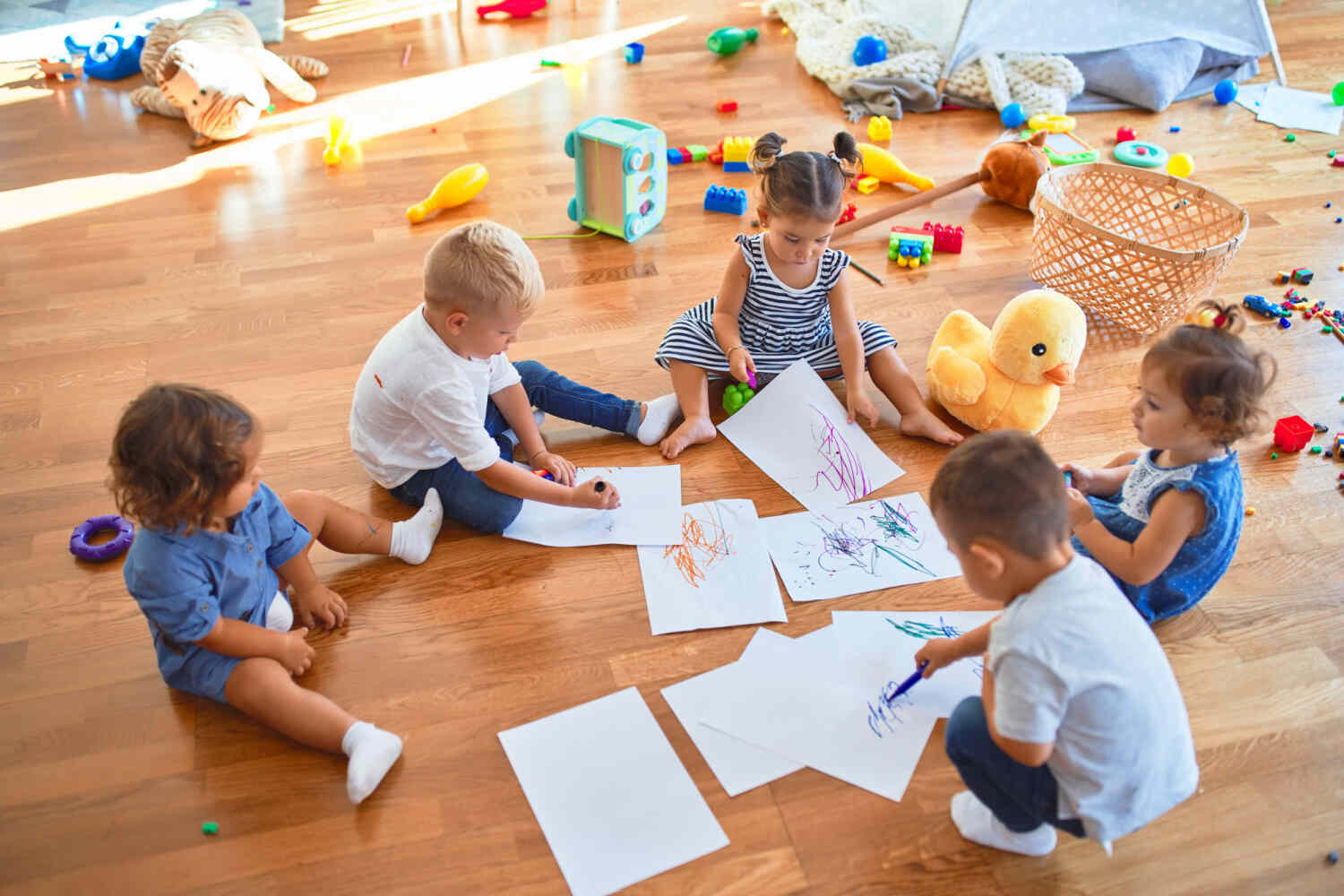
Choose a school that uses a creative learning style. Teachers repeating what is in the books and making kids learn it by rote is not an effective way to teach children. Interactive and creative methods of learning can help your toddler understand and grasp concepts or information faster (2b). They tend to enjoy and remember such lessons for a long time too.
7. Child’s Learning Pace
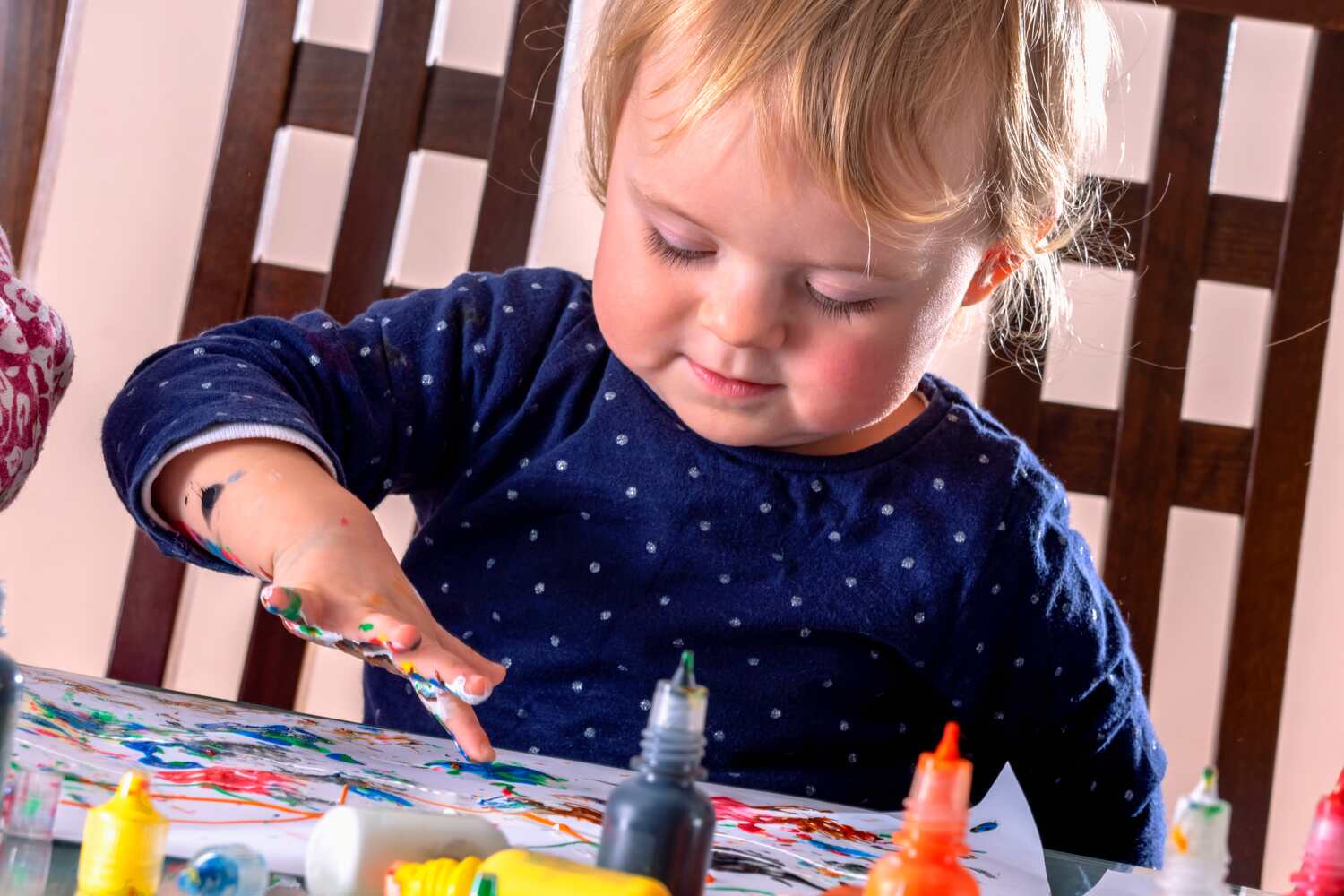
Each toddler is different and they all have different learning speeds. A preschool should recognize and accept that different kids can have different learning abilities and educate them accordingly. Many schools aim at completing the syllabus irrespective of the kid’s capabilities. In such places, a kid can lose their self-confidence and feel insecure among their peers.
Find a preschool that focuses on the process rather than the result. As a parent, it is important that you also recognize and understand your toddler’s learning pace. Do not enroll them in a preschool and other extra classes, just because you want them to match other toddlers their age. Such pressure can hinder their development.
8. Student to Teacher Ratio
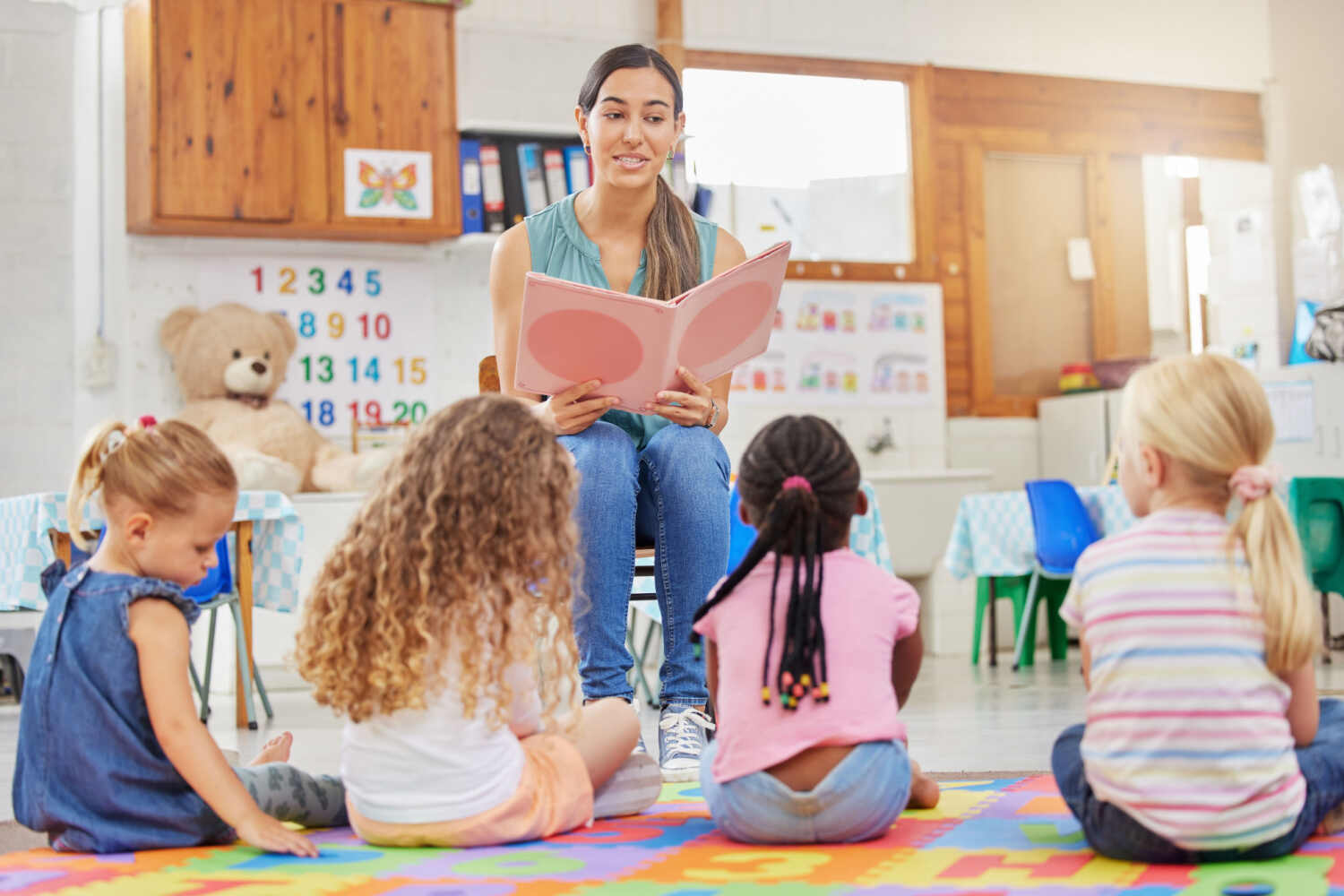
Find out the student-to-teacher ratio. The lower the student-to-teacher ratio (lesser number of students per teacher) the better the toddler’s learning and teacher’s understanding of the kid will be (3). Younger kids need more help and attention, which they cannot receive in a crowded classroom.
Talk to the school or the people in charge and ask them about the ratio. Even if the school has a very high reputation or reviews, it is advisable to avoid crowded learning environments for toddlers and young kids.
9. Trusted Name
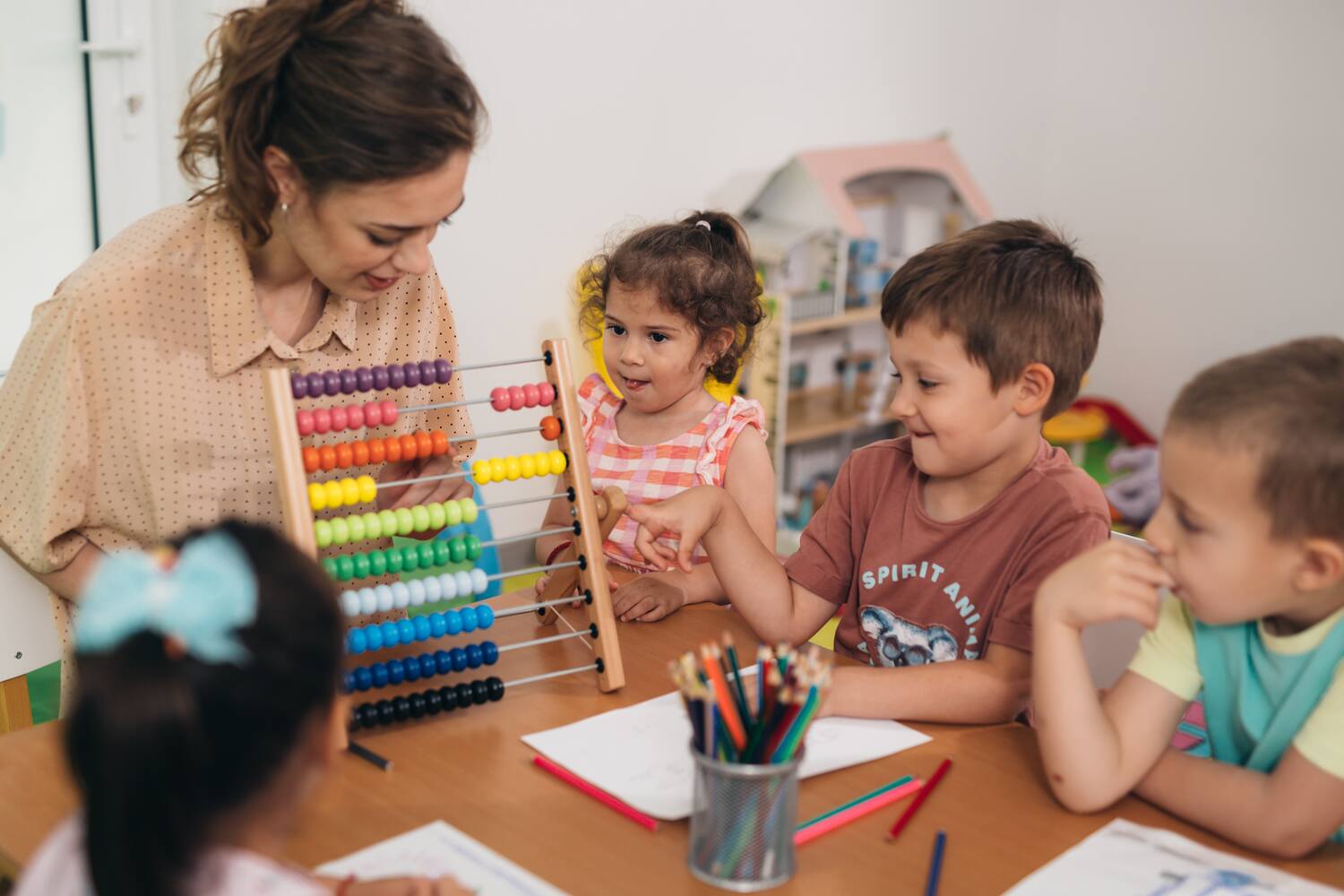
Always choose a preschool that has a reputation. Schools need to gain the trust of parents over time. This means the school will have a good standard of education, curriculum, teachers, method of teaching, facility, etc. All these are very important for a toddler’s safety and development during their days in preschool.
While it is okay to enroll your toddler in a new preschool, ensure you do your research first. Today, many new schools and preschools are coming up every year. So, parents have many options to choose from. Many schools can make tall promises regarding what they will offer your kid, but few schools can actually deliver on those promises. So, choose wisely.
Choosing the right preschool for your toddler is one of the most important decisions when it comes to their education and development. Put in a lot of thought and take your time to research your options before you enroll them in a preschool. Do not rush your decision just because it is difficult to get into that particular school or because other kids around the same age are already in school. Choose what suits your needs and your toddler’s capabilities the best.
FAQ’s
1. What Kind of Preschool is Best For my Child?
A preschool that provides a healthy and friendly learning environment and allows your child to flourish at their own pace is the best option for them. While strict rules and curriculum are necessary from time to time, preschool is a time to let the kid’s true potential surface instead of putting them in a preexisting mold.
2. What Age is Best to Start Preschool?
It depends on your kid’s adaptability and learning pace. Some children are ready to be away from home and parents at a very young age. They adapt easily. Some children need more time and can suffer separation anxiety, which can negatively impact their feelings toward school. It is better to assess if your kid is ready for school and then only enroll them in one.
References
- The Long-Term Effects of Universal Preschool in Boston – [https://academic.oup.com/qje/article-abstract/138/1/363/6701924?login=false]
- Early Childhood Essentials: A Framework for Aligning Child Skills and Educator Competencies – [https://learningpolicyinstitute.org/product/early-childhood-essentials-framework-report]
- A Meta-Analysis of Class Sizes and Ratios in Early Childhood Education Programs: Are Thresholds of Quality Associated With Greater Impacts on Cognitive, Achievement, and Socioemotional Outcomes? – [https://www.researchgate.net/publication/318948512_A_Meta-Analysis_of_Class_Sizes_and_Ratios_in_Early_Childhood_Education_Programs_Are_Thresholds_of_Quality_Associated_With_Greater_Impacts_on_Cognitive_Achievement_and_Socioemotional_Outcomes]
